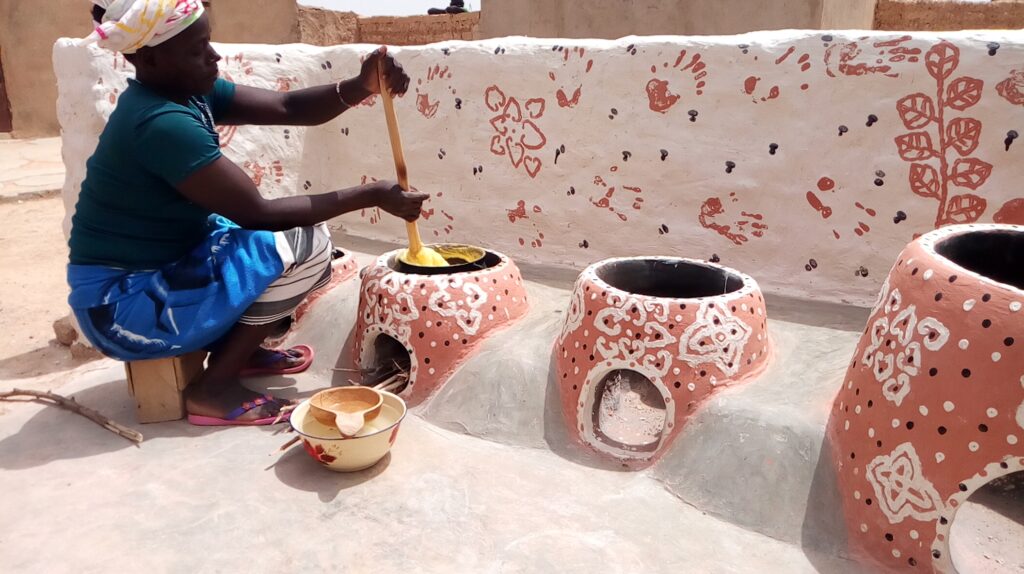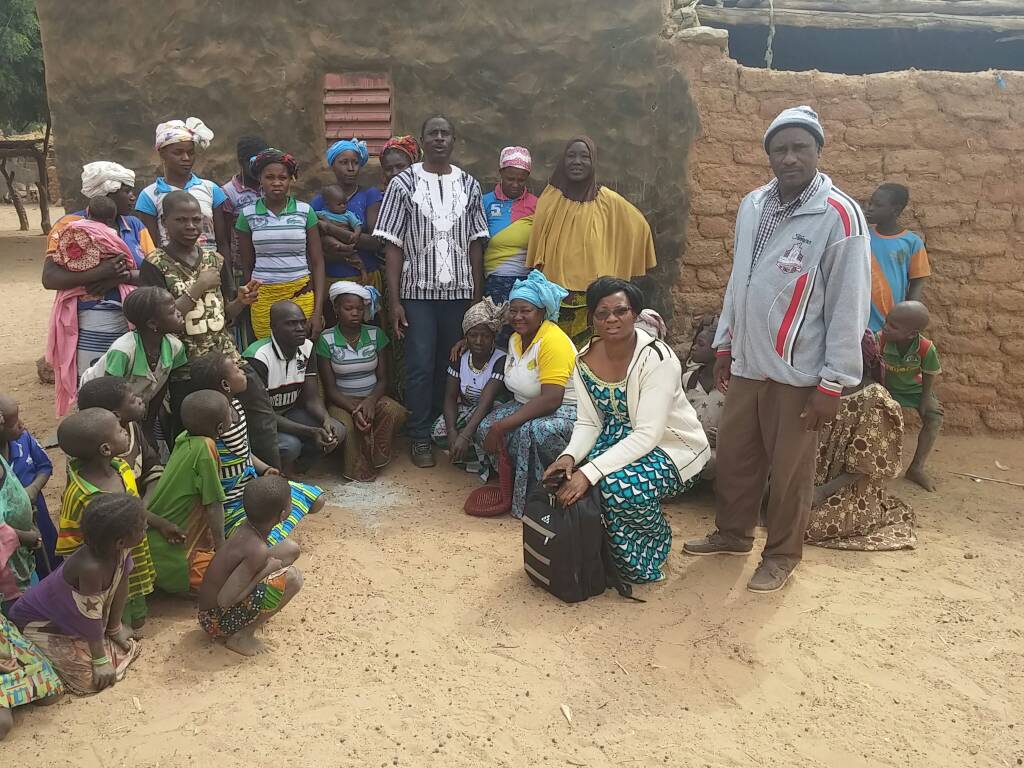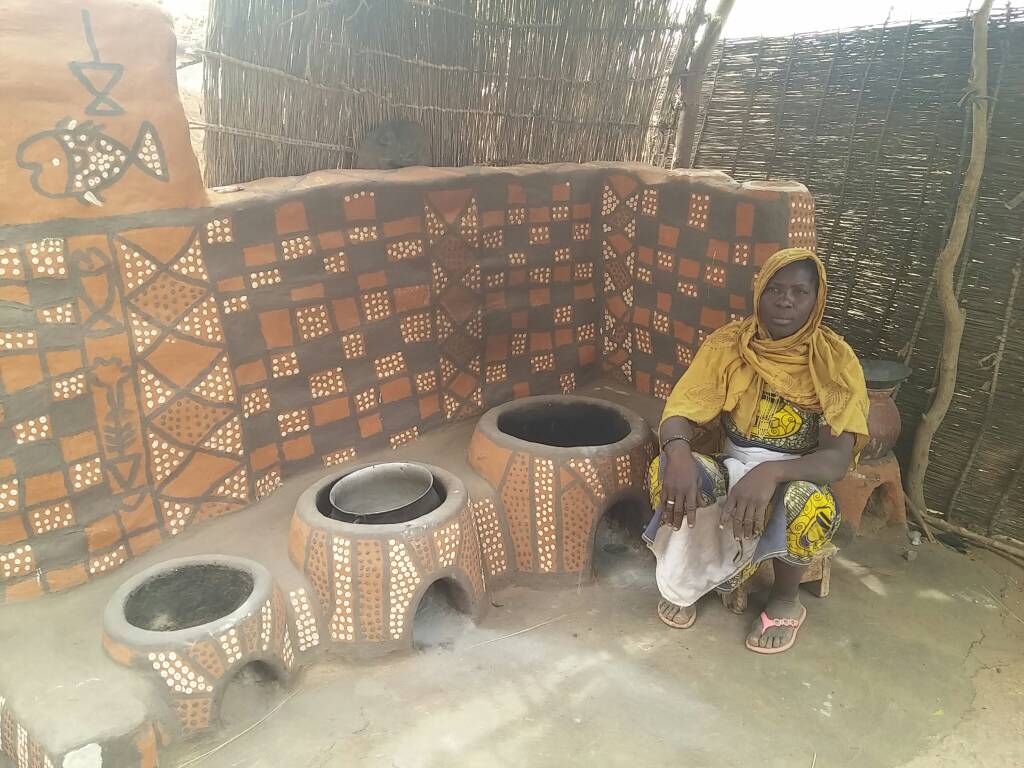
We are proud to present the latest addition to the number of climate projects we support: Efficient Cookstoves in Burkina Faso. The project is certified by Gold Standard and contributes to reducing carbon dioxide emissions and improving living conditions for the people of Burkina Faso.
Why is this project important?
In Burkina Faso, biomass and firewood are the primary fuels used for cooking, especially in rural areas. This leads to rapid deforestation and exposes local communities to harmful smoke from inefficient stoves. This project contributes to:
- Reducing greenhouse gas emissions by lowering the demand for firewood and therefore counteracts deforestation.
- Improving air quality and decreasing the risk of respiratory diseases.
- Strengthen local communities by providing training in using and producing efficient stoves, which also creates local job opportunities.

How does the project work?
The project operates through two main strategies:
- Education and production – Local communities learn how to build and use more efficient stoves that require less firewood.
- Subsidized sales – Financial support makes it easier for households to afford efficient stoves.
Through these efforts, both fuel costs and the negative environmental impact are reduced.

Background
Burkina Faso is classified as one of the world’s least developed countries. Like many other underdeveloped nations, it is increasingly affected by the negative consequences of climate change.
At the same time, severe deforestation is taking place in the country. Firewood resources have been overexploited for a long time, and 105,000 hectares of forest disappear annually. Between 1980 and 2000, the total forest area shrank from 15.42 million hectares to 11.29 million hectares.
A significant portion of the population currently uses inefficient cooking methods that require large amounts of firewood, which is one of the causes of deforestation.
Traditional cooking methods also have a negative impact on public health. According to the WHO, smoke from household cooking is the fourth-largest contributing factor to diseases in Africa.
The goal of this project is to combat poverty and desertification in Burkina Faso while reducing carbon dioxide emissions into the atmosphere.
How do the efficient F3PA cookstoves work?
The efficient F3PA cookstoves replace the traditional stove whilst respecting the local three stone cooking culture. The F3PA cookstove integrates the three stones from each household inside its design. These three stones represent the pillar of the household’s marital union.
The F3PA is significantly more efficient than the traditional open fire three stone cooking method. It reduces wood consumption by more than half in each household.
Project area
The project is located in villages located in the municipalities of Boussé, Niou, Toéghin and Sourgoubila in the province of Kourwéogo in the region Plateau Central in the centre of Burkina Faso. Almost 94% of the households in the province of Kourwéogo use the traditional stove with woodfuel as energy source. At the same time, Plateau Central, where Kourwéogo is situated, is one of the regions of the country which is severely affected by the shortage of fuelwood. In this area the available resources can only meet 12% of the demand.
Project facts
Project name: VPA-11 – tiipaalga F3PA cookstoves in Kourwéogo
Certification: Gold Standard https://registry.goldstandard.org/projects/details/1400
Project start: 2018
Area: Villages located in the municipalities of Boussé, Niou, Toéghin and Sourgoubila in the province of Kourwéogo.
The project contributes to several global sustainability goals
This project supports multiple United Nations Sustainable Development Goals (SDGs). Here’s a summary of how the goals are met:
SDG 13 – Climate Action
Reduction of greenhouse gas emissions through energy-efficient stoves. It’s a micro-scale project. During the latest monitoring period, 2021, the emission reductions for this project were 10,000 tonnes CO2e.
SDG 1 – No Poverty
According to national statistics more than 46% of the population of the Plateau Central region (with the province of Kourwéogo) can be considered as poor. This project helps reduce extreme poverty by lowering household fuel costs.
Increases access to essential services and resources, including new technologies.
SDG 3 – Good Health and Well-being
Reduces indoor air pollution, which contributes to a decrease in illnesses and deaths caused by hazardous air pollution.
100 % of the households perceived that they had less often incidence of coughing, incidence of respiratory illness and incidence of itchy eyes.
SDG 4 – Quality Education
Promotes technical and vocational skills through training in the use and production of energy-efficient stoves.
One training program for staff has taken place and 85 workshops for female project participants.
SDG 5 – Gender Equality
Recognizes and reduces unpaid household labor by making cooking more efficient.
Promotes women’s participation and influence through access to improved technology and economic opportunities.
Empower women by reducing the time and effort needed for firewood collection.
100% of the stove users perceived a reduced amount time spent on wood collection and reduced amount of money spent on wood fuel purchase.
SDG 7 – Affordable and Clean Energy
Ensures increased access to modern, clean, and affordable energy solutions.
Encourages the use of energy-efficient stoves and reduces dependence on firewood as fuel.
SDG 15 – Life on Land
Protects and restores forests by reducing deforestation and promoting sustainable use of natural resources.